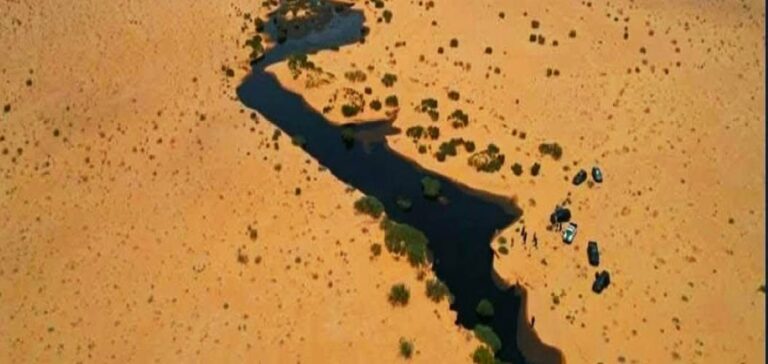Libya’s state-owned company National Oil Corporation (NOC) announced the immediate shutdown of a pipeline linking the Hamada oil fields, due to a leak discovered south of the city of Zawiya, located approximately 45 kilometres west of Tripoli. The announcement was made in a statement issued on May 24, stating that intervention and maintenance teams had been deployed to contain the oil spill.
Emergency measures activated to limit the impact
Pumping operations from the Hamada fields were suspended as soon as the leak was confirmed. The valve in the city of Alriyayna was closed to isolate the affected section, while relief valves at the Zawiya refinery were opened to reduce pressure in the pipeline system, according to the NOC statement.
The company did not disclose the volume of oil lost or the production capacity impacted by the incident. A dedicated technical team has been mobilised to investigate the cause of the leak, with no timeline given for the infrastructure’s return to service.
Potential consequences for local supply
The Zawiya site is a strategic hub for refining and distributing crude in north-western Libya. The refinery, connected to the national grid, plays a key role in supplying domestic markets. Any prolonged halt could cause disruptions in the local logistics chain, although the NOC has not reported any immediate impact on commercial deliveries.
The incident comes amid persistent vulnerability in Libya’s oil sector, marked by frequent disruptions due to technical failures or acts of sabotage. The country, a member of the Organization of the Petroleum Exporting Countries (OPEC), relies heavily on revenue generated from its hydrocarbon exports.
Inspection underway to determine the exact cause
The engineering team dispatched to the site continues inspection work to identify the precise origin of the leak. According to the NOC, “efforts remain focused on controlling the flow and protecting adjacent facilities.” No further comments were provided regarding potential environmental consequences or compensation measures.
The National Oil Corporation did not indicate whether international technical partners were involved in the repair operations. The timeline for restarting production remains uncertain at this stage, pending the results of the technical investigation.






















